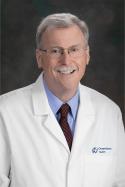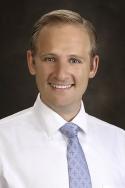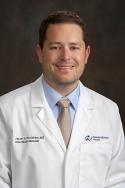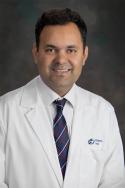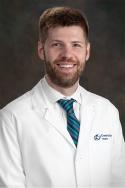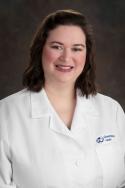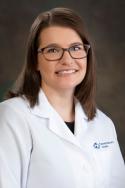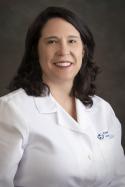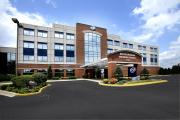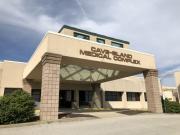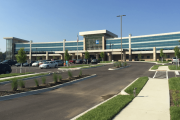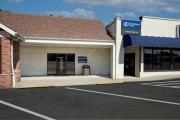Breast Cancer
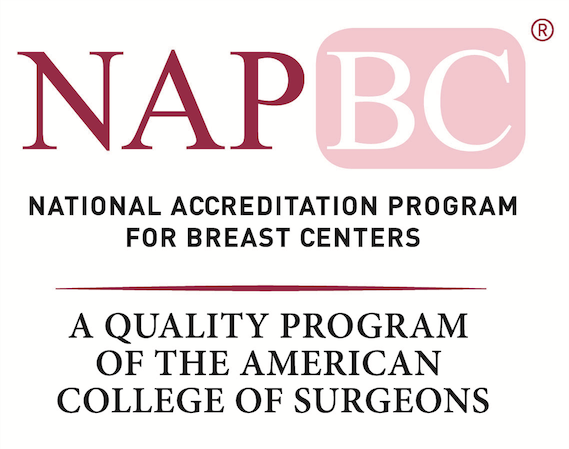 A new diagnosis of breast cancer for you or a loved one can feel overwhelming, but you aren’t alone. Here, you’ll not only find support from women facing the same challenges, but you will also have a whole team of skilled and compassionate breast cancer experts by your side for every step of treatment.
A new diagnosis of breast cancer for you or a loved one can feel overwhelming, but you aren’t alone. Here, you’ll not only find support from women facing the same challenges, but you will also have a whole team of skilled and compassionate breast cancer experts by your side for every step of treatment.
What is Breast Cancer?
Breast cancer, which develops when cells in the breast tissues grow out of control, is the most common cancer—and the second leading cause of cancer deaths—among women in the United States, according to the American Cancer Society. It can start in one or both breasts. And although it occurs most often in women, it can develop in men, too.
Early detection through regular screenings helps us treat cancer before it’s spread—leading to better outcomes. That’s why we have many advanced options to help detect breast cancer early, including 3D mammography.
Breast Cancer Symptoms
The most common symptom of breast cancer is a lump in the breast. Still, it’s important to note that most lumps in the breast are not cancer, but due to other causes, such as a cyst or fibroadenoma, which is a solid, benign (noncancerous) growth.
Other common symptoms of breast cancer include:
- Breast or nipple pain
- Flaky or red skin
- Nipple discharge
- Swelling around the breast
- Swollen lymph nodes under the arm
- Skin dimpling
However, sometimes, breast cancer causes no symptoms. That’s why regular breast screenings are so important.
Breast Cancer Risk Factors
A risk factor is something that increases your risk for developing a certain type of cancer. Some, like those related to age and genetics, cannot be changed. But others can be prevented through lifestyle changes.
Breast cancer risk factors include:
- A family or personal history of breast cancer
- Age, with increasing risks over time
- Being overweight
- Breast implants
- Certain forms of birth control
- Dense breast tissue
- Excessive alcohol consumption
- Exposure to diethylstilbestrol (DES) in utero
- Gender (women account for 99% of all cases)
- Going through menopause late
- Inherited gene changes (BRCA1 or BRCA2 gene)
- Lack of physical activity
- Starting menstruation early
Breast Cancer Types
The type of breast cancer you have depends on where it developed in the breast. There are two main types. Ductal carcinoma, which accounts for most breast cancers, starts in the breast ducts, while lobular carcinoma starts in the breast lobules (milk-producing glands).
Diagnosing Breast Cancer
The most common tool we use to diagnose breast cancer is a mammogram, which is an X-ray picture of the breasts. It’s used to find tumors and to help us tell the difference between non-cancerous and cancerous tissue.
We also offer advanced 3D digital mammography, called Hologic 3D Mammography, an advanced form of screening and diagnostic imaging that’s improved the detection of breast cancer in its earliest stages. Hologic 3D Mammography is available in Owensboro and at each of our Owensboro Health Healthplex locations, including:
- Owensboro Health Henderson Healthplex
- Owensboro Health Madisonville Healthplex
- Owensboro Health Muhlenberg Healthplex
We can help women between the ages of 40 and 64 who need help paying for a mammogram. Call 800-811-9162 to learn about our free mammogram offerings.
Learn more about mammography and breast imaging at Owensboro Health.
We also use ultrasound to show certain breast changes, like fluid-filled cysts, that are hard to see on mammograms, and MRI to screen for breast cancer in women who are at high-risk.
If imaging tests show evidence of breast changes that could indicate cancer, we’ll perform a biopsy to confirm the presence of disease.
Treating Breast Cancer
As an accredited Comprehensive Community Cancer Program, we offer nearly all the same options and technology you’d find at an academic medical center, just close to home. Your multidisciplinary care team may include social workers, nurse navigators, genetic counselors, medical, surgical or radiation oncologists, and supportive care clinicians, such as dietitians, counselors and nurse practitioners.
Our Multidisciplinary Breast Tumor Board is formed by clinicians from different areas. They meet regularly to discuss every breast cancer case and determine a customized treatment plan for each patient, based on NCCN guidelines, to help you achieve the best outcome.
Your treatment plan may include:
Surgery
Most women with breast cancer will have surgery to remove as much of the cancer as possible. Your care team will recommend either breast-conserving surgery or a mastectomy, to remove some or all of the breast tissue. We are the first in the state to use the the Clarix Imaging® VSI-360, which helps us provide safer and fewer follow-up surgeries, along with faster recovery times.
Surgery is also sometimes used to:
- Find out whether cancer has spread to the lymph nodes
- Relieve symptoms of cancer that’s advanced
- Restore the breast’s shape after cancer surgery
Radiation and Chemotherapy
In addition, we may use radiation—either alone or in combination with chemotherapy—before or after surgery.
Hormone Therapy (also known as Endocrine Therapy)
Certain breast cancers may respond to hormone therapy. In these cases, cancer cells have receptors that attach to hormones like estrogen and progesterone, helping them grow—so, we can use hormone therapy to target these receptors.
Targeted Therapy and Immunotherapy Drugs
Other breast cancers may respond to targeted therapy or immunotherapy drugs. Several types of targeted therapy drugs are used to treat breast cancer, including those that target HER2-positive, hormone receptor-positive, BRCA gene mutation and triple-negative breast cancers.
Genetic Counseling
Our genetic counselor can help you and your family understand your inherited risk of cancer, coordinate genetic testing and determine what screenings and preventive techniques would benefit you.
Support & Survivorship
Patients with breast cancer often have a high participation rate in our support groups and survivorship activities. We hope that you find these resources helpful in finding a sense of community as you fight this disease.



